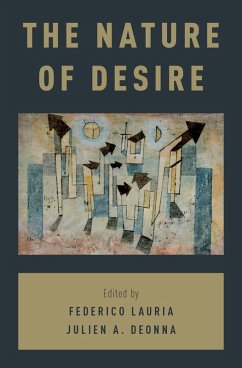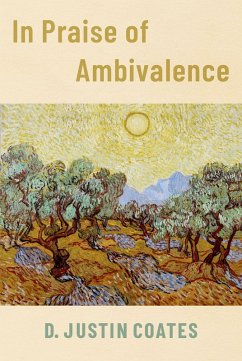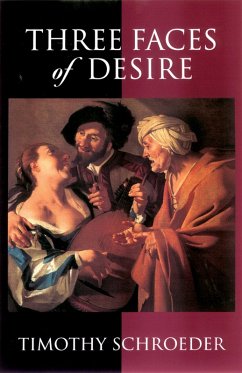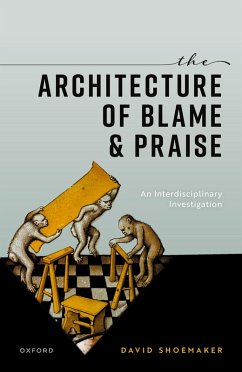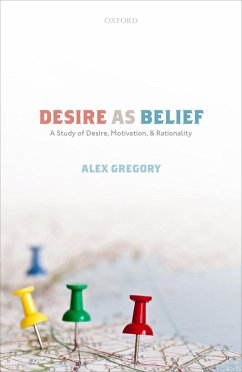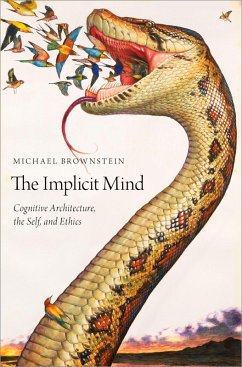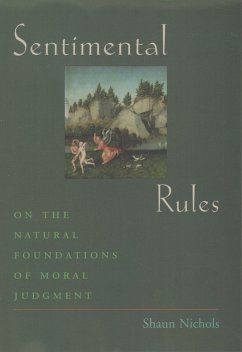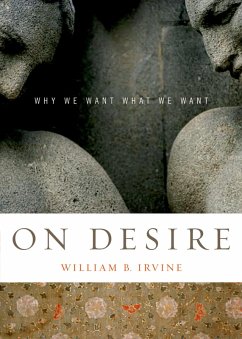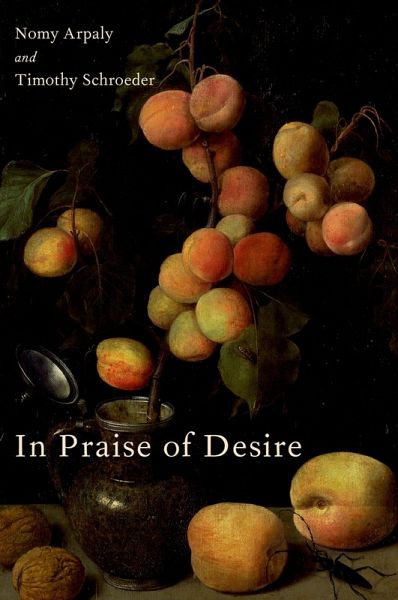
In Praise of Desire (eBook, PDF)

PAYBACK Punkte
9 °P sammeln!
Joining the ancient debate over the roles of reason and appetite in the moral mind, In Praise of Desire takes the side of appetite. Acting for moral reasons, acting in a praiseworthy manner, and acting out of virtue amount to nothing more than acting out of intrinsic desires for the right or the good, correctly conceived. Reason, understood as the power to deliberate about what to think and do, is shown not to be the basis for our ability to act for reasons. Reason is rather the ability to perform certain mental actions which help us to become settled about what to think or do, and these actio...
Joining the ancient debate over the roles of reason and appetite in the moral mind, In Praise of Desire takes the side of appetite. Acting for moral reasons, acting in a praiseworthy manner, and acting out of virtue amount to nothing more than acting out of intrinsic desires for the right or the good, correctly conceived. Reason, understood as the power to deliberate about what to think and do, is shown not to be the basis for our ability to act for reasons. Reason is rather the ability to perform certain mental actions which help us to become settled about what to think or do, and these actions are in turn motivated by desire. Thus reason is, if not a slave of the passions, then at least a useful tool deployed by desiring agents. If desire were merely an impulse to act, then a moral psychology built on intrinsic desires might be unpromising. But intrinsic desire is much more than an impulse to act. Intrinsic desires are a natural kind, states of the brain which contingently but commonly cause impulses to act, as well as causing a rich array of feelings and cognitive effects (on attention, learning, and more). Understood in this way, intrinsic desires are more central to agency, good will, and virtue than any mere impulse could be. In Praise of Desire shows that a desire-centered moral psychology can be richer than philosophers commonly think, accommodating the full complexity of moral life.
Dieser Download kann aus rechtlichen Gründen nur mit Rechnungsadresse in A, B, BG, CY, CZ, D, DK, EW, E, FIN, F, GR, HR, H, IRL, I, LT, L, LR, M, NL, PL, P, R, S, SLO, SK ausgeliefert werden.




